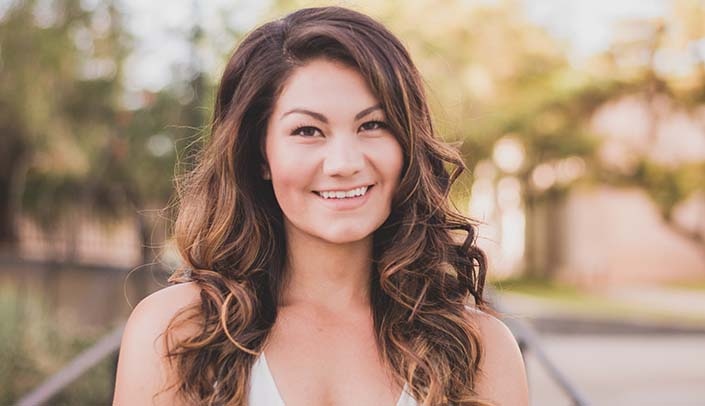Laura Flores, an M.D./Ph.D. student at UNMC, recently took part in “Reading and Writing About Sickness and Health,” a University of Nebraska at Omaha course taught by Steve Langan, director of the Medical Humanities program at UNO.
The course allows students to explore various themes of the human experience in health care by reading and discussing short stories, poems, creative nonfiction pieces and more. In turn, the students also work to write and present their personal health and illness autobiographies.
The latter portion of the class involves playwriting, specifically producing scripts for one-act plays on any medical, health care and social issues that come to mind.
With the ongoing coronavirus pandemic in spring 2020, students didn’t need to look far for possible topics.
Flores wrote her play about a conflict that is becoming all to relevant to medical professionals. There’s one device and two people need it. Who gets the lifesaving equipment?
“My play is about a resident physician who is grappling with distribution of a resource between two patients, and one he has a longer-term relationship with,” Flores said. “One patient attempted suicide and is the son of a surgeon, and the other patient is a mother diagnosed with COVID-19. Who should get the ventilator?”
Flores said this was her first experience writing a play, but before she entered her graduate program, she studied philosophy and was interested in exploring the role of ethics in health care. She said taking the Medical Humanities course was a nice way to get back into the ethics realm and think about how other people are approaching science and medicine.
“I’m much more understanding of people’s experiences than I was before,” Flores says. “In medicine, we’re really centered on knowledge. So, to reflect and say, ‘I may be the expert on the science, but I’m not the expert on your personal experience.’ That was really big for me.”
Flores and her classmates were helped in the playwriting experience by Stephen Cedars and Julia Hansen of Theater for Social Change, a New York City-based residency program that brings playwriting to universities as a vehicle for storytelling and better understanding essential social issues. Cedars and Hansen have been traveling to Omaha to share their expertise and guide UNO students in this course for the last several years. This year, the course was held remotely.
“Drama is a way that one can grapple with really big, important social questions,” Cedars says. “And thus far over the years, we feel more and more certain that’s true.”
The class culminates in a reading of everyone’s scripts by professional actors, friends of Cedars and Hansen. In previous years, this event was held in a public venue and attended by Omaha community members; during social distancing, students instead invited friends and family to tune into a live Zoom broadcast.
The class is comprised of some students focused on art and humanities and others with a science or medical background. Together they bring unique perspectives and the opportunity to learn from each other.
“I think having some diverse voices and backgrounds is really beneficial,” Flores says, “and I hope more students have the opportunity to take this class.”

I am so proud of the future, Dr. Flores! With these experiences and training, she will be a physician-scientist leader in the ethics of medicine and research.
Great article Laura. When your play makes it to the big stage, I will be sure to attend 🙂
Good article Laura!!
Is a video of the reading available?
Great article and the author, Courtni Kopietz worked at CAST as an undergraduate !
I love to see that these courses are taking place and our future healthcare providers are participating. Along with the technical aspects of providing care the ability to write, speak and listen confidently, contemplatively – to communicate – is so imperative. Great job Laura and all who participated!